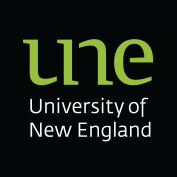RE-IMAGING THE POST-PANDEMIC UNIVERSITY
Campus Morning Mail
Professor Stephen Parker (ex-VC, UC) spoke at the LH Martin Institute Conference in late October on the role of tertiary education in supporting post-Covid social and environmental and economic recovery. He subsequently published a feature story in CMM on the same topic.
Professor Parker’s message was stark – the sector’s ability to play a positive role in the transformative economic, social, and environmental change looming for Australia is limited unless it transforms itself first.
He posited that the world is on the cusp of a period of equal historical significance as the Enlightenment in the 18th Century. Large scale automation and the subsequent social and economic upheaval, demographic challenges, competition for skilled migration, entrenched social and economic disadvantage, climate change (preventing further harm as well as living with the consequences of past damage), the strengthening of the Nation State, the entrenchment of short-term, partisan politics particularly in the West, and the political and economic rebalance between East and West will all contribute to fundamental changes to the current order.
However, right now the current catalyst for change is Covid. The last time Australia was at a similar tipping point of large-scale national change was post World War II. Unlike the Commonwealth Government of the post-war period which was imbued with reforming zeal, Professor Parker suggests that current governments are generally antithetic to long-term, reformative policy agenda. The focus is on the here and now (or more specially the short-term political cycle).
So how can the tertiary education sector transform itself to become an effective positive force in this tumultuous environment? Professor Parker proposes the following:
- We need to become our own advocates and demonstrate policy leadership as a sector.
- Part of this leadership may be working toward developing a united education eco-system (from school education through to tertiary would be ideal but at least a coherent tertiary eco-system should be our aim). Governments are unlikely to make this leap on their own.
- As a sector, and as individual education providers, we need to envisage what will provide us with epistemic or knowledge-based authority in the new age. Concepts posited for consideration included:
* Equality of access to knowledge;
* The development of post-disciplinary curriculum with a focus on humanics and systems thinking;
* Truly personalised learning and learning-linked experiences using technology to differentiate learning;
* A strong focus on life-long learning (something he noted as more of a motherhood statement included in all university strategies rather than a demonstrated commitment); and
* University campuses as places of connection not just learning.
Most of us will have mulled over the how of the institutional-level considerations noted above but the call to action as a sector will be new to many and may be the most difficult to achieve.
WHAT FRESHERS HELL IS THIS? INSIDE THE UNIVERSITY CAMPUS CHAOS
A short, human interest, article on how UK students are dealing with a return to campus following ‘Freedom Day’ in the UK.
PLACE BASED EDUCATION: CREATING SOCIAL CONNECTEDNESS
Social Innovation Research Institute
The Social Innovation Research Institute has released a report on creating social connection with communities – an integral part of UNE’s commitment to Place-based education. Whilst not education focused the report provides interesting reading and a few key insights.
An ACODE Whitepaper – 28 January 2021
Professor Michael Sankey Griffith University
President of the Australasian Council on Open, Distance and eLearning (ACODE)
..as we move into 2021, and the social distancing restrictions that most jurisdictions put in place have been relaxed somewhat, it is important to understand what institutions are intending to do in relation to returning to face-to-face lectures.
AUSTRALIA's HIGHER EDUCATION DELIVERY OFFSHORE AND ONLINE - TRENDS, BARRIERS AND OPPORTUNITIES
Melbourne Centre for the Study of Higher Education
In late 2020 the Melbourne Centre for the Study of Higher Education and the Australian Government Department of Education released a report on Australia’s higher education delivery offshore and online.
The paper explores a number of models of off-shore delivery and an overview of key markets, including online TNE



